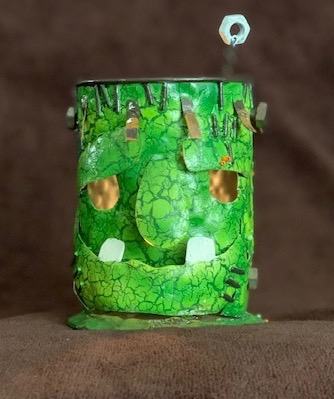Jealousy—the green-eyed monster or the ugly green monster—is an emotion we’re hesitant to admit to. Often it distorts perception and generates bitterness. A few weeks ago we touched on how King Saul’s presumption and rebellion cost him his kingdom. Eventually David would sit on the throne; but before that happened, Saul and others fell prey to the ugly monster. Today we’ll look at one of these bitter men, someone who should have been a champion for David but instead unjustly accused him.
David was anointed when he was a young man. Before he was officially placed in the royal position, he continued to tend sheep and do the bidding of his father Jesse. On one occasion, Jesse asked David to deliver provisions to his brothers who were part of the Israelite army facing the Philistines. David then heard the taunting of Goliath and witnessed the fear it created in the Israelites. David, however, was not afraid; his response bordered on amazement that anyone would “defy the armies of the living God”(1 Samuel 17:26). He asked what would happen to the man who, “takes away the reproach from Israel”(v. 26). David’s oldest brother heard his questions. We read that, “Eliab’s anger was kindled against David, and he said, ‘Why have you come down? And with whom have you left those few sheep in the wilderness? I know your presumption and the evil of your heart’”(v. 28). There’s that word “presumption” again. Was David taking authority which was not his? Or . . . were Eliab’s words generated because of Eliab’s anger rather than supposed presumption on the part of David? He didn’t accuse David of any horrible crimes, but he belittled David’s work and misjudged David’s motivation. Thousands of years later, these are still areas we’re tempted to judge in others. We need to be certain our judgments are not generated by envy. Eliab’s view of the situation was clouded by his bitterness, and his accusations prove nothing regarding David’s heart but quite a bit about his own heart.
Later in the chapter David killed Goliath, a feat which would earn him superhero status for thousands of years. His initial questions and his courage to face the giant were not results of an evil heart or pride in his own prowess as Eliab accused. His confidence was a result of his personal experience with the power of his God and a solid conviction that God is the ultimate victor. David explained to King Saul, “’Your servant [David] has struck down both lions and bears, and this uncircumcised Philistine shall be like one of them, for he has defied the armies of the living God.’ And David said, ‘The Lord who delivered me from the paw of the lion and from the paw of the bear will deliver me from the hand of this Philistine’”(1 Samuel 17:36-37).
Eliab’s words to David evidenced an incorrect perception. Interestingly, one chapter earlier God had something to say about Eliab’s heart. This was not an arbitrary opinion but rather the judgment of One who sees and knows all. When the prophet Samuel was sent to Jesse’s family to anoint a son to be future king of Israel, Eliab appeared to many to be the perfect choice. The LORD did not choose Eliab, however, and said, “’Do not look on his appearance or on the height of his stature, because I have rejected him. For the LORD sees not as man sees: man looks on the outward appearance, but the LORD looks on the heart’”(1 Samuel 16:7)—enlightening irony God includes here. This older brother who was rejected because the LORD saw his heart proved his evil foolishness by criticizing the heart of his younger brother, a man who was called a man after God’s own heart (1 Samuel 13:14 and Acts 13:22).
Three lessons: 1) Remember the power of your God and ask him to give you the strength to accomplish his tasks. 2) Guard against envy and bitterness so that your perception of others does not become distorted and your ability to encourage God’s people is not diminished. Unjustly accusing others hinders our ability to be used by God much more than it will hurt the one we’re accusing. 3) Recognize that bitterness will often cause people to make unjust accusations; don’t believe every judgment of character you hear.

